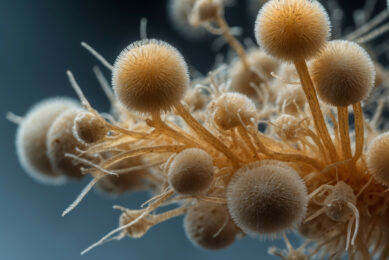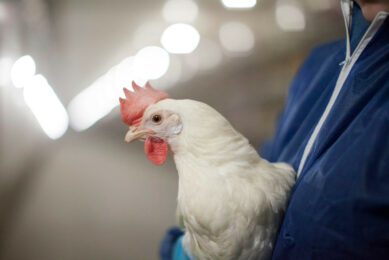Keep the 5% rule for organic feed

It may sound strange that organic meat and eggs are not produced from animals with diets that are 100% organic. But there are simply not enough organic (protein rich) raw materials available to satisfy the demand. The EU still wants to push the 100% rule.
It has always been the ambition for the European Union (EU); to make organic pig and poultry feeds 100% organic by the end of 2014. The last couple of years, pig and poultry producers were allowed to use a maximum of 5% non-organic raw materials (proteins) in the feed. But as we come closer to the end of the year, it still seems that there are not enough organic raw materials available to make the diets 100% organic. Keeping in mind that part of the raw materials has to be sourced locally, according to the EU rules. That is making it even harder to find suitable protein sources, as the percentage of organic raw materials that have to be sourced locally will; probably increase in the near future.
Extension until 2017
This is why the European Union has extended the timeframe on introducing 100% organic raw materials in organic pig and poultry feed to 2017, when the new organic action plan will come into force. This decision was made last week in Brussels. This derogation means that organic producers are still allowed to mix a maximum of 5% non-organic protein raw materials in the diets. The allowance to mix non-organic raw materials in the feed currently gives feed formulators a degree of flexibility in providing optimum levels of key nutrients in diets. And since feed accounts to 70-80% of the total production costs for pig and poultry, the correct formulation and rationing of feed is critical.
It is not the first time that the EU has extended the time frame. In 2011, Brussels also wanted to bring back the 5% allowance of non-organic raw materials to 3% in 2012 and 1% in 2013. Nothing happened because the EU Member States indicated that the reduction of the inclusion rates would make it very difficult for the livestock sectors. The European Commission therefore decided to keep the 5% rule.
New rules for organic products
But will the EU extend again after 2017? Little change so it would seem. In the new organic action plan, EU Farming Commissioner Dacian Ciolos wants to introduce stricter rules for the production and sale of foods bearing an official organic label. He wants to stick to demanding 100% organic ingredients in animal feed.
From a consumer perspective, you might think that organic pork, poultry and eggs should come from farms that are using 100% organic ingredients. Apparently, this – and the currently labelling – creates confusion in the organic marketplace. But from a farmer’s perspective, it is much more complicated. Feed is a very important component and you have to have access to the right protein sources to make sure the animals get all the nutrients they need – whether they are organically or conventionally raised. And does a 95% organic diet really makes a difference? If the EU pushes for the 100% rule, I wonder what effect this will have on the current organic farms in Europe?
Keep the 5%
I think that changing the animal feed rules for organic production – as from 2017 – is one of the most controversial ones in the organic reform proposals from the EU. Pigs and poultry require a specific balance of proteins and amino acids for optimum growth, and this has to be respected. And I don’t see the organic soy and pea production in Europe take off that quickly to meet the demand for organic protein sources in the coming years. Before you know it, it is 2017.











